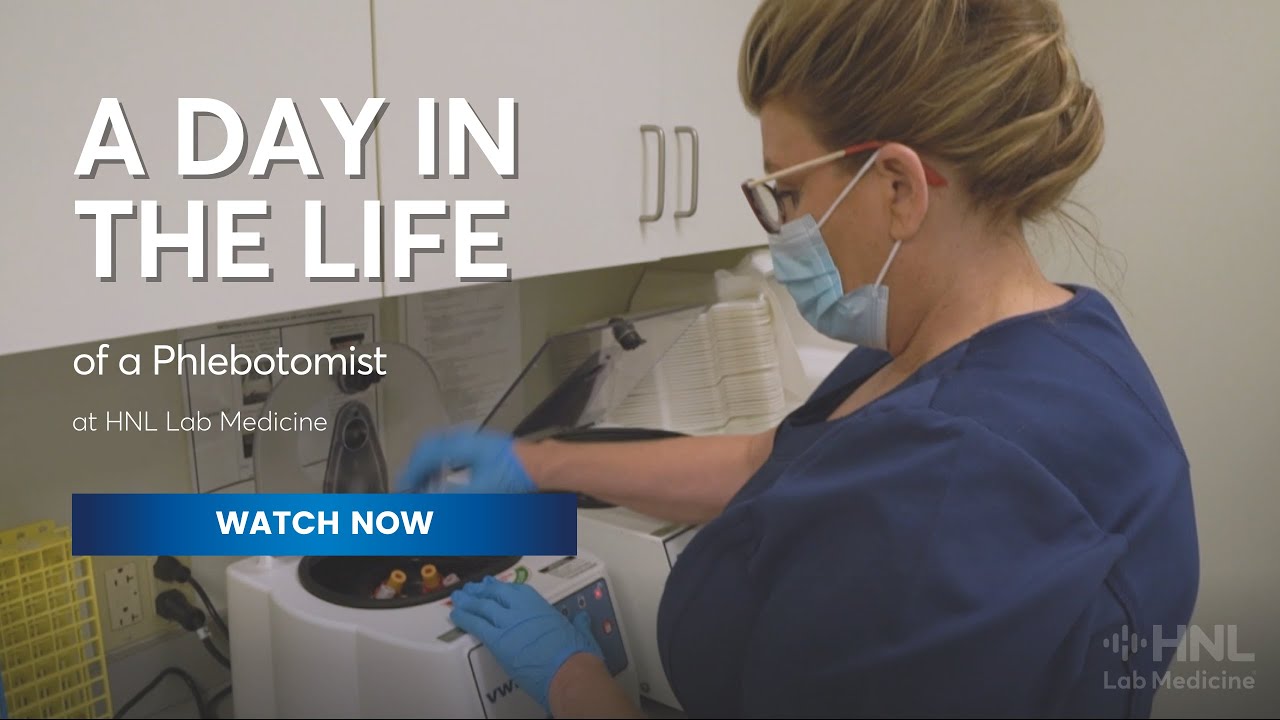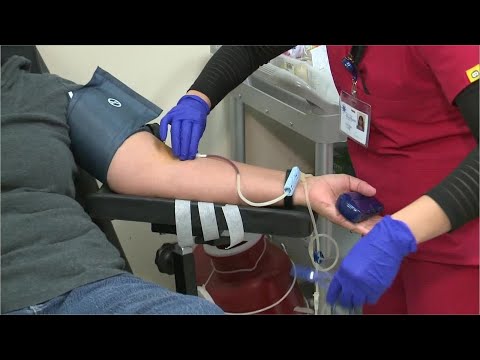In a world where flashier medical roles like heart surgeons and anesthesiologists get all the glory, phlebotomist jobs often remain in the shadows, underrated and unappreciated. But let’s face it: these unsung heroes are the backbone of patient care. Phlebotomists are first responders for blood work and testing, responsible for drawing blood samples that can reveal everything from vitamin deficiencies to more severe health conditions like bowel cancer. A little blood can go a long way in diagnosing potentially life-threatening conditions and ensuring timely treatment.
Did you know that the earlier a condition is diagnosed, the better the treatment outcomes usually are? A fascinating study published in the Journal of Clinical Pathology underscores the importance of early blood tests. The results are clear: having dedicated phlebotomists in the lab significantly increases the chance of timely interventions. As healthcare systems pivot to put early detection at the forefront, the significance of phlebotomist jobs is ballooning to new heights.
So, let’s break it down: phlebotomists are not just blood drawers; they’re also confidants, counselors, and friends. Every day, they strive to create a comforting environment for anxious patients—a feat in itself. With that said, let’s dive into specific roles within this dynamic field that can change lives daily.

7 Phlebotomy Jobs That Change Lives
Phlebotomy isn’t just a career; for many, it’s a calling. Here are seven roles that are making serious waves and impacting lives every day.
1. Hospital Phlebotomist
First off, we have hospital phlebotomists. These professionals are the front line in drawing blood from patients who range from nervous children to seasoned adults. Take Maria Gonzalez from California, for instance. Known for her comforting smile and warm demeanor, Maria has a knack for calming jittery kids during their first blood draws. Her talent in building rapport can turn a potentially traumatic experience into a positive one.
2. Mobile Phlebotomist
The mobile phlebotomist role has exploded in popularity, especially after the pandemic turned our lives upside down. These professionals are game-changers, bringing their services directly to patients’ homes. Companies like Labcorp On-Demand set the bar high by helping those with limited mobility get vital blood tests without stepping foot outside. This role makes healthcare not just accessible but also incredibly convenient.
3. Clinical Research Phlebotomist
Let’s not forget clinical research phlebotomists. They’re vital in drug trials and scientific studies, where their work can lead to revolutionary treatments. Institutions like the Mayo Clinic rely heavily on skilled phlebotomists to ensure the integrity of their groundbreaking research. You’re talking about having the potential to influence life-saving drugs that treat serious ailments, including bowel cancer. Talk about meaningful work!
4. Donor Center Phlebotomist
At blood donor centers, phlebotomists are the stars of the show. They ensure a smooth and pleasant experience for those altruistically donating blood. Their interpersonal skills can make the difference between a one-time donor and a lifelong contributor. Organizations like the Red Cross frequently highlight their phlebotomists, showcasing how compassionate interactions can lead to lives saved—one donation at a time.
5. Outpatient Phlebotomist
Next up are outpatient phlebotomists. They collect samples for tests that patients will discuss later with their doctors, playing a pivotal role in ongoing health management. Their work often influences decisions that may prevent serious health issues down the line. It’s about laying down the groundwork for a healthier lifestyle.
6. Forensic Phlebotomist
Now, here’s where things get wild: forensic phlebotomists. These specialists collect blood samples at crime scenes and contribute significantly to investigations. Their work supports law enforcement in bringing justice to families hungry for answers. It’s a high-stakes gig, and they have the potential to impact society dramatically.
7. Phlebotomy Educator
Lastly, we have phlebotomy educators. With an increasing demand for well-trained phlebotomists, seasoned professionals are stepping into teaching roles. Not only do they secure their futures, but they also ensure that the next crop of phlebotomists embodies qualities like compassion and superb patient care. Institutions like the American Red Cross offer certification programs that blend technical skills with emotional intelligence, proving that this field is about more than just needles.

The Connection Between Phlebotomy and Bowel Cancer Awareness
Phlebotomist jobs are crucial in awareness initiatives, especially when it comes to conditions like bowel cancer. Blood tests can signal underlying health issues before they escalate and become serious. By educating patients on the importance of routine screenings, phlebotomists encourage individuals to pay attention to those stomach noises that often slip under the radar. They empower patients to act sooner rather than later.
Did you know that symptoms like unusual stomach noises could be a sign of digestive issues? Phlebotomists provide an essential link between patients and the diagnostic resources they need, ensuring vital conversations happen earlier.

Unique Challenges and Rewards of Phlebotomy
Phlebotomy comes with its own set of hurdles, and it’s essential to acknowledge them. Dealing with emotional patients—especially those facing dire diagnoses—can weigh heavy on the heart. Yet, many phlebotomists find immense satisfaction in their work. The relationships they forge are unique, often becoming the comforting faces in patients’ journeys.
John Robinson, a former patient, emphasizes that he credits his phlebotomist for the support he received during a critical health scare. These emotional connections define the profession, proving that even a short encounter can profoundly affect someone’s life.

Embracing Technology in Phlebotomy Jobs
Let’s talk tech. The integration of cutting-edge technology into phlebotomist jobs has transformed how these professionals operate. Advanced blood collection systems and patient management software have streamlined processes, reducing both stress and time. Automation is on the rise, allowing phlebotomists to focus on patient interactions, which is critical for comfort and rapport.
That said, a human touch is irreplaceable. After all, wouldn’t you prefer to meet a smiling face instead of a robot when you’re feeling a little queasy? The balance between efficiency and empathy is vital, and phlebotomists are incredibly skilled at achieving it.

An Innovative Look at the Future of Phlebotomist Jobs
Looking ahead, the role of phlebotomists is set to grow even more vital. With healthcare evolving to be more patient-centric, these professionals are not just helpers but also advocates for healthier lifestyles. As awareness increases for diseases like bowel cancer, their contributions will continue to play a crucial role in early detection and effective treatment.
The world may not always notice the everyday miracles performed by phlebotomists, but the difference they make is undeniable. One blood draw at a time, they change lives—often without breaking a sweat. In an ever-changing landscape, these jobs are more than just careers; they are essential pieces of the healthcare puzzle, waiting to make a significant impact every single day.
So next time you see a phlebotomist in action, remember: they might just be the unsung heroes we didn’t know we needed. They’re not just drawing blood—they’re helping save lives.
In a way, it’s like the experience of flipping through your yearbook 360 from back in the day, reliving those moments that shaped who you are. Phlebotomists give us the opportunity to redefine our health stories, often with a subtle jab of a needle and a world of compassion.
Phlebotomist Jobs That Change Lives Daily
The Vital Role of Phlebotomists
Phlebotomist jobs are often underestimated, but they play a crucial part in healthcare. They’re the unsung heroes who collect blood samples that can mean the difference between life and death. Fun fact: the process of drawing blood has ancient roots, believed to date back to the Egyptians! While this profession may not be as glamorous as, say, the antics of The brat pack, it certainly holds an essential place in modern medicine. With their precise skills, phlebotomists build trust with patients—a quality that can turn nervousness during a blood draw into a smooth experience.
Moreover, working in phlebotomist jobs requires not just technical knowledge but also people skills. Think about it: you’re often the first point of contact for patients. This is akin to how wood Screws hold pieces of furniture together—strong, reliable, and multi-functional. Those who excel in this profession know how to ease tension and keep the atmosphere calm, and they often find themselves cultivating rewarding relationships with patients. It’s more than a job; it’s about making a lasting impact.
Interesting Facts About Phlebotomy
Ever wondered how much blood the average phlebotomist draws in a day? It’s staggering—some draw up to 40 samples! Each vial serves a specific purpose, from checking for diseases to monitoring treatment progress. In fact, the field has evolved so much that emerging technologies like Figgs AI are beginning to assist in data management to streamline processes effectively. Isn’t it fascinating how new technologies can complement traditional practices?
Additionally, learning and training never stops in phlebotomy. There’s always something new on the horizon. Phlebotomists often need to keep up with advancements in medical practices, which is much like waiting in anticipation for an upcoming film like Lilo And Stitch 2025. Just as movie enthusiasts stay updated on the latest in cinema, phlebotomists must stay informed about best practices to provide top-notch care. These constant changes make the job dynamic and fulfilling—nobody wants to get stuck in a rut!
The Bigger Picture
While phlebotomist jobs might seem narrow in focus, they contribute greatly to the bigger health care picture. Every blood draw is vital for proper diagnosis and treatment decisions, making their role indispensable. Phlebotomists can sometimes deal with sad news, too, so resilience is key—much like how Steve Harvey navigates his own ups and downs in life. The balance of emotional intelligence and technical competence makes those in this field truly remarkable.
So, the next time you think about phlebotomist jobs, remember: it goes beyond simply taking blood. The work unites science and compassion, supporting patients throughout their health journey. Just like a rear differential helps maintain a vehicle’s stability, phlebotomists help keep the healthcare system running smoothly, ensuring that each patient gets the care they need. Whether it’s a routine checkup or a critical test, their contributions change lives daily.











